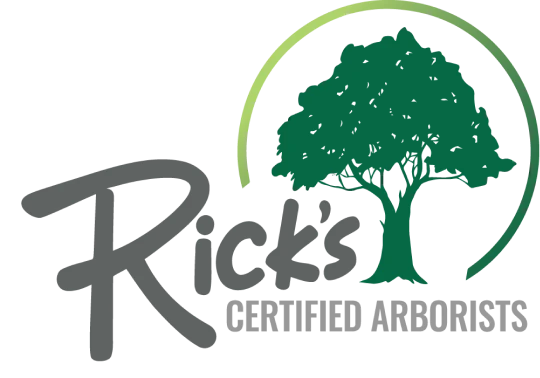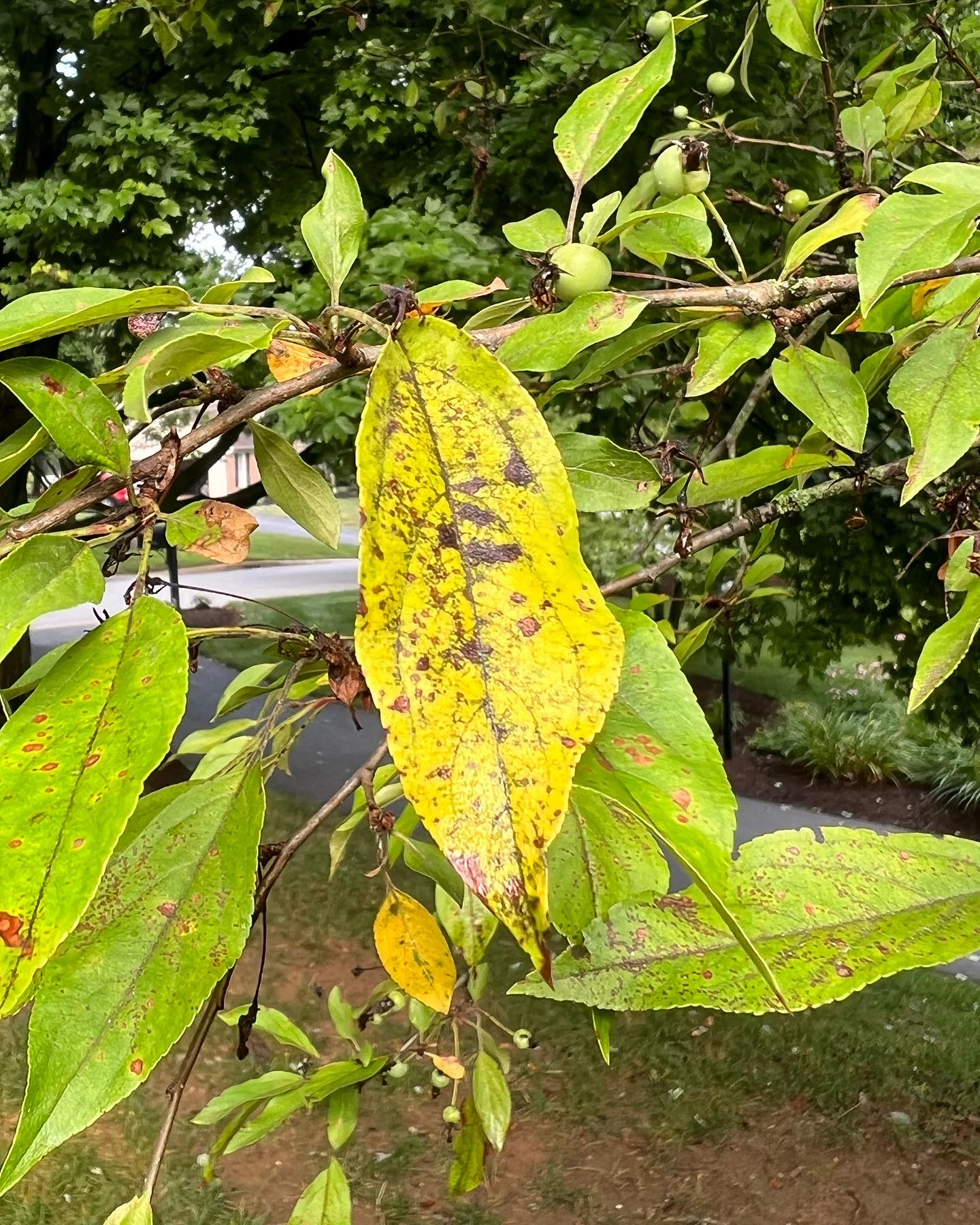Apple Scab is a highly common disease in Pennsylvania. It causes olive-green or black, velvety spots on apple leaves, yellowing leaves, and defoliation. Olive-green spots on the fruit also appear and turn the fruit corky and brown. This disease can ruin the look of backyard apple trees and the chance of getting edible fruit from your home plantings. It can also kill trees if it gets out of control.
Fortunately, Rick’s PHC Certified Arborists can help you deal with the effects of this devastating tree infection. Call us at 610-840-2655 to find out how we can help.
What is Apple Scab?
Apple Scab is a disease caused by the fungus Venturia inaequalis. It affects Pennsylvania’s pear, mountain ash, hawthorn, crabapple, and apple trees. The disease can ruin trees and destroy your chances of having quality fruit.
Symptoms
As mentioned above, Apple Scab causes black or olive-green spots on leaves. These spots usually have indistinct margins. In serious cases, the leaves could turn yellow and fall prematurely. “Corky” spots render the fruit inedible.
Treatment
Leaf litter needs cleaning up immediately. The fungus overwinters in the leaves, and getting rid of them will lessen the chances of a large infestation in the spring. Unfortunately, this tactic cannot prevent a major infestation.
Certified Arborists should apply fungicides at least every 2 weeks in the spring growth period.
Prevention
Luckily, several crabapples and apple varieties resist Apple Scab. Frequently, replacing affected trees with those resistant to the disease is your best course of action if the Arborist can’t get your problem under control.
Are You a Good Candidate for Apple Scab Treatment?
Any homeowner who has noticed the signs of Apple Scab is an excellent candidate for treatment. Treatment of this disease goes smoothly when it has not progressed very far. Otherwise, replacing the affected trees with a resistant variety works best.
Why Choose Rick’s PHC Certified Arborists?
Our expert Certified Arborists can detect and treat most tree ailments. Using a combination of common sense and highly advanced scientific skills, our Arborists can help you preserve your beautiful backyard landscape.
Frequently Asked Questions About Apple Scab
Here are a few popular questions from our customers:
What are some of the apple varieties that are resistant to Apple Scab?
Some less vulnerable varieties include the Redfree, Pixie Crunch, Liberty, and Jonafree.
How far apart should I place my trees to decrease the chances of spreading Apple Scab?
Your trees should be at least 30 to 35 feet apart for best results.
What hygiene should I practice where I plant my trees?
Apply urea to the trees after you harvest the apples but before the leaves drop. This practice will help the leaves decompose and reduce the disease’s chance of spreading. Destroy all raked leaves in the fall.
Call Rick’s PHC Certified Arborists
Call Rick’s PHC Certified Arborists at 610-840-2655 to find out how we can help you with your Apple Scab problems. We can use a variety of approaches to ensure your trees stay healthy.

